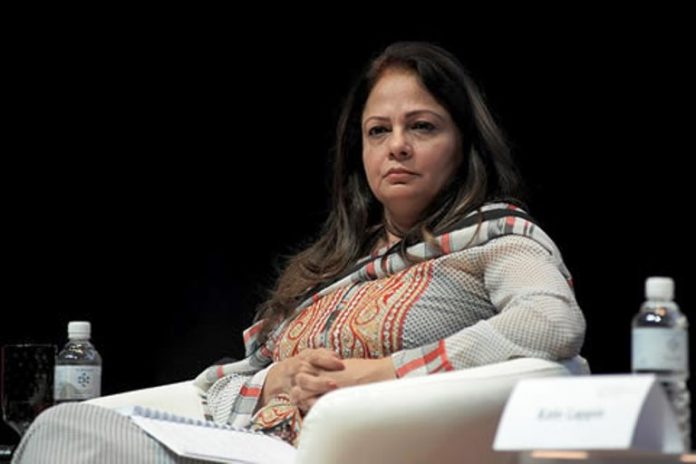LAHORE: Punjab Finance Minister Dr Ayesha Ghous Pasha has said that domestic revenue mobilisation is the only reliable and sustainable resource for countries to fight poverty and finance essential services.
She expressed these views while addressing the 3rd session of “Smarter taxation for better gender equality” of First Global Conference on Taxation and SDGs at New York.
The United Nations (UN) estimates that a tax ratio of 20 per cent of Gross Domestic Product (GDP) is the minimum necessary to finance the achievement of the Millennium Development Goals (MDGs). In Pakistan this tax to GDP ratio increased from 8.7 per cent in FY2012-13 to 10.5 per cent in FY2016-17.
She said that awareness of the importance of taxation as the only reliable long-term resource for sustainable development has been growing in the past few years, in a global context of rising inequality, economic crisis and declining aid flows.
A fair and progressive national tax system can deliver a redistribution of wealth, curb inequalities and ensure everyone benefits from economic development. However, developing countries face great challenges in raising enough tax revenue to reduce poverty and fund essential services.
The minister said that the gender implications of a shortfall in revenue are significant, but despite women being more vulnerable to poverty and the most in need of essential services, there is still little understanding of the differing impact of fiscal policy, especially revenue rising, on women and men. The first step in this regard is to carry out an informed gender analysis of tax systems, produce more practical studies and to make these studies available to civil society.
She added that the quality of the tax mix (that is, where revenue is coming from) is crucial to ensure that an increase in tax revenue does not fall unfairly on the poor. Since women are more vulnerable to poverty, it is crucial to consider the consequences of taxation policy from a gender perspective. For those concerned with inequality, it is necessary to understand the structure of the tax system to see where the burden falls.
While answering the questions Dr Ayesha Ghous Pasha said that the gender biases can be explicit and implicit. “Explicit gender biases result from specific provisions of the law, regulations or proceedings that deliberately treat men and women differently. Whereas, implicit gender bias occurs where tax systems intersect with gender relations, norms and economic behaviour. For example, because gender norms assign household and childcare responsibilities to women, women tend to use a larger portion of their income on basic goods such as food and clothing. Systems that tax basic goods may, therefore, place a heavier tax burden on women.”
She said that by virtually every global measure, women are disadvantaged relative to men. Women do the vast majority of unpaid care work such as caring for children, fetching water and performing household chores in all countries. They are overrepresented in poorly paid precarious work.
All the speakers and panellists at the conference set ambitious targets for all countries, to end all forms of poverty, fight inequalities and tackle climate change while ensuring that no one is left behind. Achieving these goals requires enormous financial resources.
The Addis Ababa Action Agenda recognises that much of the increased public financing to reach these goals will have to be generated domestically. Taxation has a key role to play in financing the SDGs. At the same time, an era of unprecedented international cooperation on tax is underway with the implementation of Automatic Exchange of Information, the Base Erosion and Profit Shifting project, and the strengthening of the United Nations Committee of Experts on International Cooperation in Tax Matters—all creating new opportunities for the enhanced participation of developing countries in international tax policy discussions and institutions, but also new challenges to fully realising the benefits of international cooperation on tax.
It is in this context that the platform for collaboration on tax was formed. The platform partners, International Monetary Fund (IMF), Organisation for Economic Co-operation and Development (OECD), United Nations (UN) and the World Bank (WB), have each worked for many decades to support their member countries to effectively mobilise tax revenues from the most economically advanced to the poorest. In this new era of increased international cooperation, however, there are opportunities for deeper collaborative work through the platform. The partner organisations bring together their own mandates and expertise, and their convening power to engage in and stimulate research, and together through the platform lead the debate and action on the broad role of taxation in achieving the SDGs.




